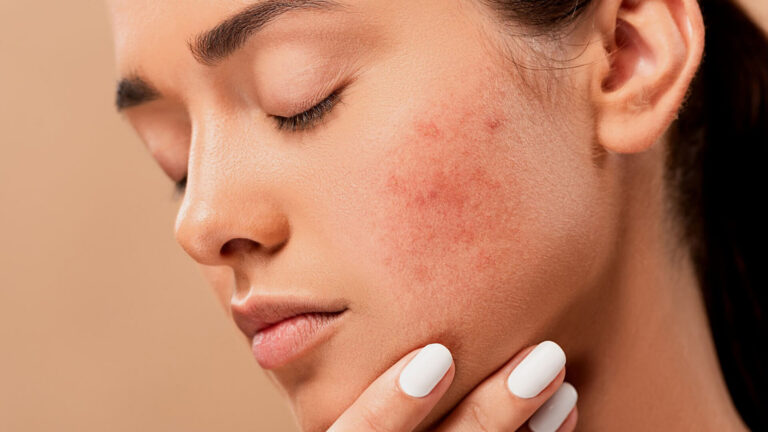Red skin may be the most recognizable symptom of rosacea, however, there is more to this increasingly prevalent skin condition that affects approximately 16 million Americans. Many people experience more than facial flushing and redness caused by the skin condition rosacea. Rosacea symptoms are redness of the face, flushing, blotchy dryness, acne-like bumps, eye irritation, and thickened skin.
Rosacea, in general, may affect people with any type of skin, ranging from dry to oily or everything that is in the middle. When treated properly using a combined treatment of correct and effective skincare, including medical treatment and laser, rosacea is often treated with great success. If you are experiencing these symptoms, a dermatologist will guide you through the process and help you identify if you are suffering from rosacea, along with the type of rosacea you may have.
Despite the fact that there is no certain knowledge about the root-causing rosacea, the treatment methods for rosacea are getting better all the time. You can follow these rosacea skin care tips to help reduce your rosacea symptoms.
1. Use gentle skincare
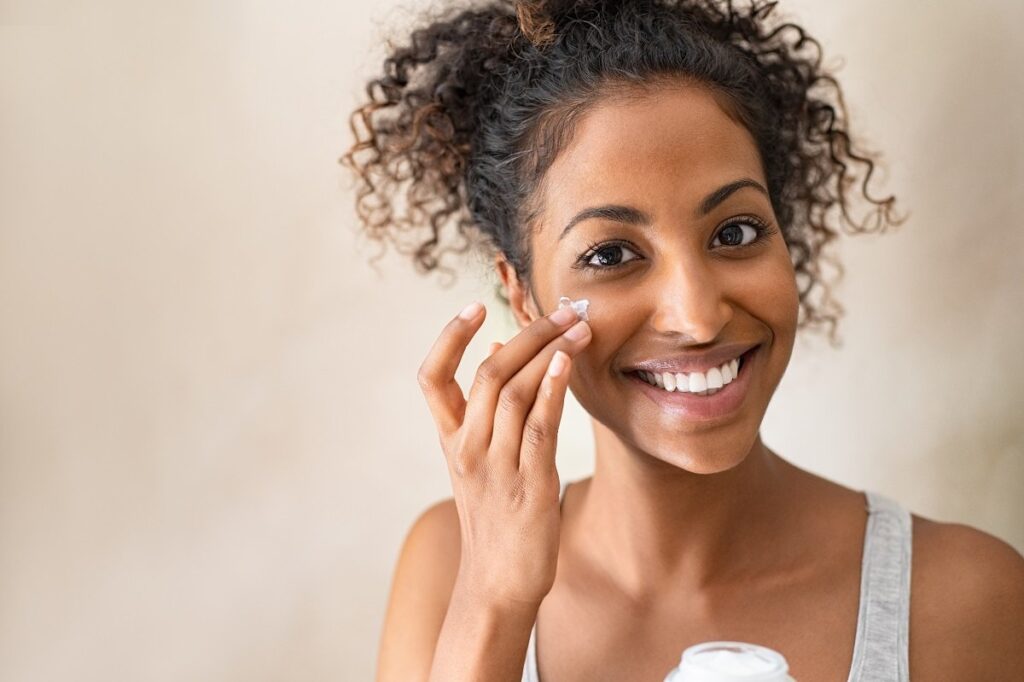
Maintaining your daily skincare routine is essential for rosacea. It is important to ensure that your skincare products do not damage the natural base of your skin and minimize the use of products that irritate or redden the skin. Using soap-free cleansers with synthetic surfactants is proven better than regular soaps. Even though rosacea may seem similar to acne, there are many acne therapies known to be causing irritation to those suffering from rosacea. Never include products formulated with retinoids or salicylic acid. In addition, make sure your cleanser contains no fragrances and is hypoallergenic. When it comes to your rosacea skincare routine, keep in mind that scrubbing of skin should never be an option.
The truth is that there is no cure for rosacea, however, treatments are more and more adapted to your personal rosacea symptoms. If you suffer from rosacea, you may find that many skincare products and cosmetics cause irritation to your skin.
2. Choose makeup based on minerals and free of perfume
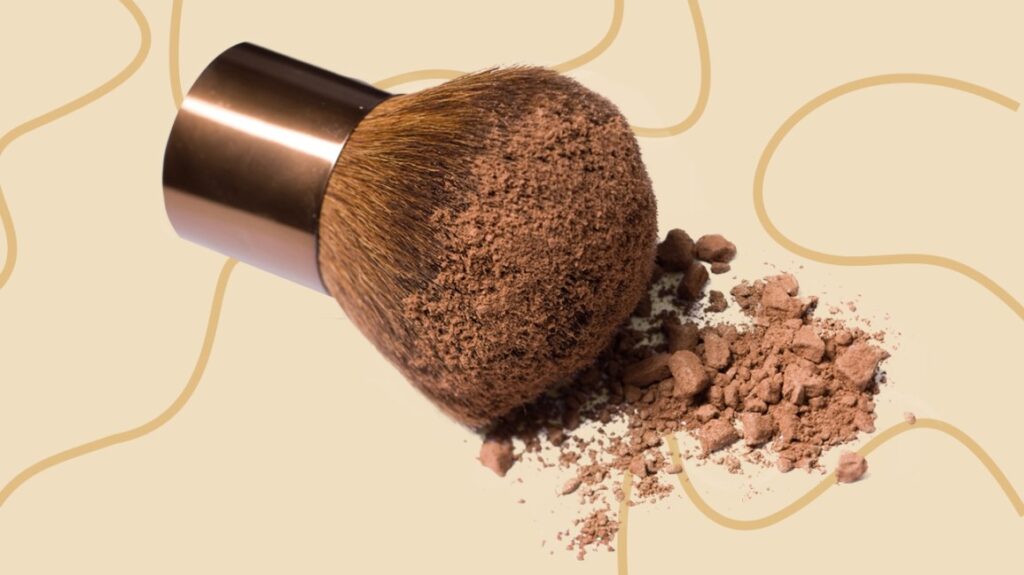
Makeup may help conceal reddish cheeks, but it can also cause rosacea symptoms to get worse. Consider using make-up that is mineral-based and that contains no perfumes. Because they are generally less skin-irritating compared to all other makeup options. Also, it is important to consider the formula of makeup to be used when dealing with rosacea. It is recommended to go for pressed powder instead of using liquid formulas while picking a base, considering that liquid causes pores to become clogged and can make rosacea symptoms worse. However, the first thing to do if you’re uncertain of the effects that a product will eventually cause on your skin is to consult a dermatologist.
3. Use supplements to treat your rosacea
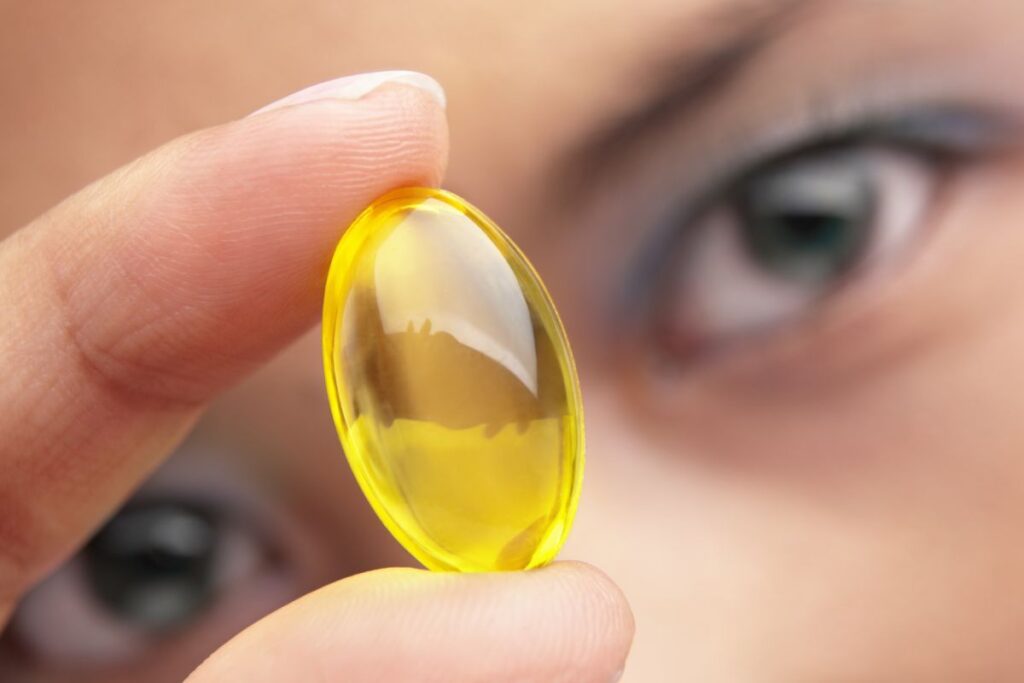
Taking into account the fact that nutrition is very crucial for your skin and acne, dermatologists suggest using a number of essential supplements, which may help maintain your skin clear. Mixing vitamins and natural supplements together on a daily basis may also be helpful in sustaining your skin and nails in a healthy state. However, you should be aware of the fact that supplements usually require 8-12 weeks before you notice visible improvement in your skin, therefore, keep your patience and never give up. When it comes to oral supplements, rosacea and acne have a lot of similarities. A dermatologist will go over the supplements available to you and determine which ones may work best for your skin.
For example, SkinVite was created from a combination of natural, high potency ingredients specifically made for people with rosacea and acne. It helps sustain your gut microbiome while providing skin detoxification benefits as explained by Devan Patel, Tampa pharmacist. Containing 19 various pharmaceutical-grade vitamins, minerals, herbs, and supplements, this ultrapowerful formula is clinically studied.
4. Sun protection is an essential component
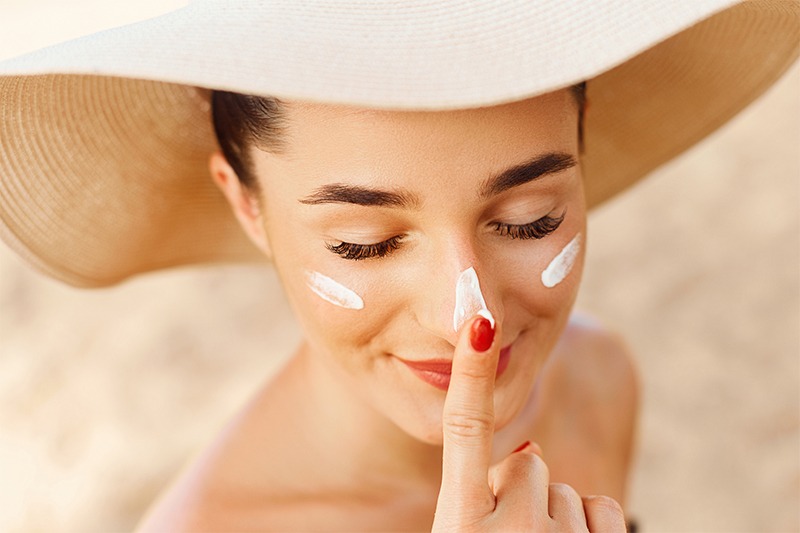
Always use sunscreen as an essential part of a rosacea skin care daily regime. What’s more, sunscreen plays a crucial role in the treatment of all facial redness that is sensitive to light. It is the cheeks that are the most commonly hit. Be sure to select sunscreens that contain physical blockers, for example, zinc oxide or titanium.” In the same way, you carefully pick your rosacea skin care products, consider selecting sunscreens that are perfume-free as well as hypoallergenic. Also, remember to apply them gently over the skin, as well as reapply them often.
5. Improve your mood

Stress may be an influential contributing factor in the development of rosacea. There are some scientific techniques to help decrease psychological stress, which includes cognitive reframing and practicing mindfulness. Following and maintaining a healthy lifestyle is helpful for rosacea treatment and your mental and physical well-being.
Taking care of yourself properly on a daily basis is a formula that lets the mind get recharged along with the body. For instance, when it comes to rosacea skincare tips, having a pre-sleeping ritual in place is actually good for your sleep maintenance. Enabling your workday to begin with a ritual has the potential to increase your productivity.
There are a number of common things that can make your rosacea get worse. It means you need to properly educate yourself on what they are and also on how to prevent them. Maintaining a diary is a smart move, as it will help you pinpoint the specific things that are worsening your skin condition. Maintaining a diary is a smart move, as it will help you detect the specific things that are worsening your skin condition. The frequent things that can make rosacea out of control would be exposed to high temperatures, dealing with extreme levels of stress, consuming alcohol, as well as eating spicy foods.
Gentle cleansing, moisturizing as well as sun protection might be helpful in reducing this vulnerability, but you need to carefully pick your skincare products and makeup. It is recommended by dermatologists when buying products that you check the content list before you decide to buy.

